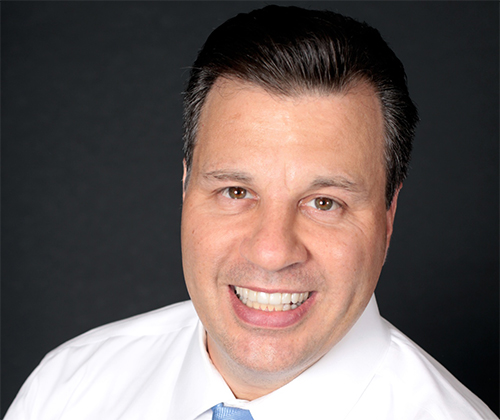I was first introduced to the chiropractic profession three and a half years ago, by Dr. Patrick Gentempo. The benefits that my family and I have received have been nothing short of extraordinary.
As a business person and entrepreneur for over 30 years, I have witnessed firsthand the devastating effects that the lack of “foundational business principles” can have on businesses. After observing the chiropractic profession, I am convinced that the primary reason that the profession has not grown (and touched many more lives) is due to the overwhelming percentage of DCs with limited or nonexistent business training. It’s not their fault, since there is really no place to get this training. Worst of all, many chiropractors believe that marketing and practice management IS business training, when in fact, it comprises a small component.
 The profession must embrace wholeheartedly the massive hole in chiropractic training (of not teaching foundational business principles, and teaching primarily practice management techniques). The profession must begin to put as much emphasis on teaching these principles at chiropractic colleges, as it puts on teaching anatomy and adjusting. Only at that point, will the profession begin the steady climb toward being mainstream.
The profession must embrace wholeheartedly the massive hole in chiropractic training (of not teaching foundational business principles, and teaching primarily practice management techniques). The profession must begin to put as much emphasis on teaching these principles at chiropractic colleges, as it puts on teaching anatomy and adjusting. Only at that point, will the profession begin the steady climb toward being mainstream.
I am not saying that business is more important than anatomy and adjusting. I am saying, however, that without proper training in business, the profession will not proliferate in the way it deserves to proliferate around the world. I believe that the non-adoption of foundational business principles is the main thing that is holding chiropractors, and this profession, back. Just like health and healing are based on foundational principles, so is business.
As a principle to ponder, one of the first things a business person needs to learn and apply, is the concept of creating a compelling “Catalyzing StatementTM” for their overall business objective. A Catalyzing Statement is a next-generation Purpose Statement. By way of example, John F. Kennedy did not say the space program’s purpose statement in his famous speech, which was to create the world’s best space program and beat the Soviets; he instead changed the world by declaring his now famous Catalyzing Statement, “We will send a man to the moon and return him safely to Earth by the end of the decade of the 60s.” These words changed the world by catalyzing the action of thousands of people.
I’ve learned, first hand, that every chiropractor has the same opportunity to stop what they are doing for a moment, and create a compelling Catalyzing Statement that will forever change their practice from the perspective of impact, success, leverage, and reach.
Why does your practice exist? Why should someone visit you? Why should they stay long term? Why should anyone work for you? These are questions that MUST be carefully thought through. These are questions that could be answered more easily if you have a compelling Catalyzing Statement in place.
Here are some examples of powerful Catalyzing Statements to get your creative juices flowing:
I envision a community with no diabetes. An impactful chiropractor inside of every family. We exist to eradicate pain and suffering from this community. Using innate intelligence, rather than prescriptions, to keep our families healthy. A successful chiropractor in every community in America. We open our doors each morning, to cure our community of the devastating effects of obesity.
Now, the big question: What is your Catalyzing Statement?
Hopefully, you can now envision how these straightforward Catalyzing Statements can mobilize a community, a staff of employees, or the profession itself, to have more impact on the world.
Creating a powerful Catalyzing Statement in only the first step on the journey toward becoming a more successful and principled business person; but, as you can see, it is an important step. It is my belief, that in order to radically increase the probability of long-term business success for a chiropractic office, while at the same time, leveraging the talent and skills of the DC and his or her staff, one must adopt a very straightforward model. This model has been proven with several hundred DC’s over the past year and a half and the experience has been very revealing. The good news is that there is a lot of ‘low hanging fruit’ for the majority of practices. Business principles are easier to understand than health principles. So when a DC gets hold of them, they are transformative.
I believe that there are 12 Foundational Principles of Business. Here are some more examples of very basic ones, that when executed, are transformative to your practice. Values–Based-Decision–Making says that when all decisions in your practice, from whom you hire, to whom you put your hands on, to where you locate your offices, are made from the same common set of long-term enforced values, you substantially increase your business’s viability, while eliminating the vast majority of business-debilitating mistakes. I’ve seen businesses double in size by effectively implementing only this one basic principle.
Next, we’ll consider the age-old principle of Management-by-Objectives. Many times, small businesses stall because they are trying to do TOO MUCH. They falter due to indigestion from trying to digest too many opportunities. Imagine that your practice only focuses on FIVE objectives during the next quarter. Imagine that all of your staff members are fully informed of exactly what those five objectives are, and that they are all bonused on the successful achievement of those FIVE? Want to take your staff members to the next level of production, and supercharge your practice? After you’ve communicated your FIVE practice objectives, then meet with each staff person individually, and assign them each their own FIVE quarterly objectives that fully align with your office’s FIVE objectives. Then pay them a bonus upon achieving these. This very simple practice adds simplicity, success-probability, and full employee engagement/alignment to your practice.
Hopefully these examples give you enough evidence to pursue a grounding on learning foundational business principles in order to turbo-charge you practice.
 Rick Sapio has been involved in more than 75 companies, as either a founder, investor, owner, or operator over the past 35 years. Rick has realized that putting all business decisions through the lens of simplicity, probability and leverage;, while at the same time using a principle-centered business approach, radically increases the success of virtually any business. For the past two decades, he has been CEO of a financial services/healthcare holding company. Two years ago, he launched BusinessFinishingSchool.com to help entrepreneurs lay the foundational skills necessary for exponential growth in their business
Rick Sapio has been involved in more than 75 companies, as either a founder, investor, owner, or operator over the past 35 years. Rick has realized that putting all business decisions through the lens of simplicity, probability and leverage;, while at the same time using a principle-centered business approach, radically increases the success of virtually any business. For the past two decades, he has been CEO of a financial services/healthcare holding company. Two years ago, he launched BusinessFinishingSchool.com to help entrepreneurs lay the foundational skills necessary for exponential growth in their business









